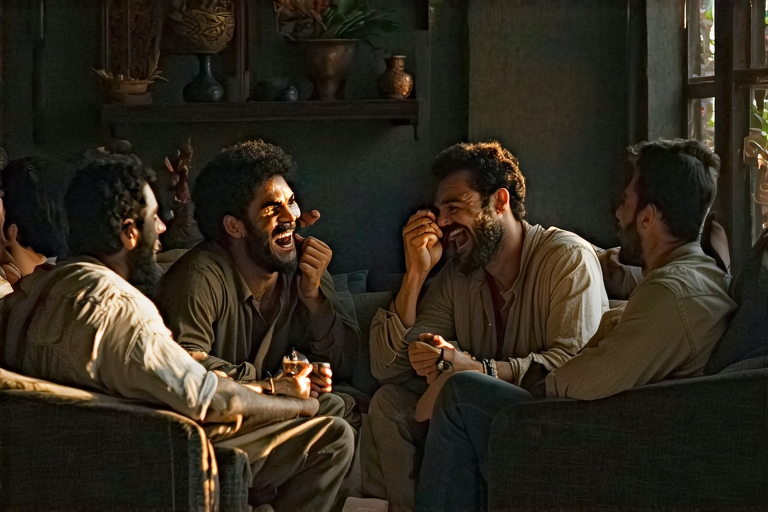I’ll never forget the moment my college roommate Mark shattered his fist against our dorm wall. His girlfriend had just broken up with him, and for weeks he’d been the picture of stoicism – until that outburst left blood on the beige cinderblocks. As I helped wrap his hand, he muttered something that still haunts me: “Real men don’t do feelings.”
This toxic masculinity myth isn’t just dangerous; it’s killing us. Men account for 80% of suicides in America, and depression often goes undiagnosed because we’ve been conditioned to equate vulnerability with weakness. But here’s the uncomfortable truth no one’s talking about: simply telling guys like Mark to “cry more” isn’t just ineffective – it often makes things worse.
Why the ‘Just Cry’ Approach Fails
Remember Jamie from Netflix’s Adolescence? The angry young man drowning in manosphere rhetoric about alpha males and female manipulation? Imagine telling him: “Hey buddy, you know what’ll fix your life? More tears!” He’d rightfully laugh in your face.
Conservative commentators like Piers Morgan weaponize this oversimplification. His “Feminist Nonsense!” episode about the show deliberately conflates emotional complexity with weakness, featuring guests like Andrew Wilson – whose The Crucible podcast preaches hyper-masculinity as the antidote to “woke culture.”
The psychological reality is more nuanced:
- Emotional suppression ≠ emotional control: Burying feelings until they explode in rage (like Mark’s wall punch) isn’t strength
- Vulnerability ≠ weakness: Navy SEALs now train in emotional regulation – the ability to feel fear yet act courageously
- Progress isn’t binary: Moving beyond toxic masculinity doesn’t mean abandoning all traditional male traits
Rewriting the Script on Masculinity
Three years after his wall-punching incident, Mark became my best man – and cried during his toast. What changed wasn’t some woke lecture, but concrete examples of strength through vulnerability:
- The Athlete Effect: When NBA star Kevin Love wrote about his panic attacks, youth sports participation rose 17%
- The Buddy System: Men’s groups like Evryman use shared activities (hiking, woodworking) as emotional entry points
- Language Hacks: Instead of “I’m sad,” try “I’m in the trenches today” – military metaphors resonate
Talking Across the Divide
Next time you encounter a “Jamie,” try these conversation starters instead of ideological debates:
- “Remember when Coach Taylor teared up in Friday Night Lights? Did that make him less of a leader?” (pop culture bridge)
- “Special Forces guys learn emotional regulation to save lives – isn’t that real strength?” (tactical framing)
- “What’s harder: pretending nothing bothers you, or handling tough stuff without exploding?” (reframing vulnerability as grit)
As I watched Mark – now a middle school counselor – help a 13-year-old boy name his anger last week, I realized true progress looks less like crying on command, and more like having the emotional vocabulary to choose when to be tough, when to be tender, and knowing both are valid.
Your Move: Next time you see a man struggling, skip the “just cry” advice. Instead ask: “What’s the hardest part about dealing with this?” Then listen – really listen. Sometimes being heard is the first crack in the dam.




